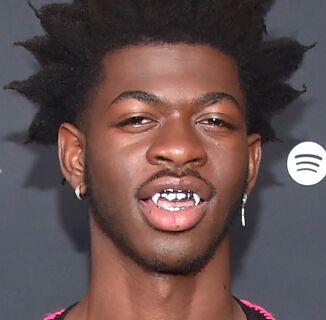Many parents struggle when it comes to teaching their kids about the so-called “real” world. While many concepts are beyond children’s grasp, parents strive to ensure they grow up to be compassionate individuals. Thus, teaching children about gender identity can be tricky for some, as they’re not sure how to approach such subjects with sensitivity and clarity. But, as a non-binary person shared on Twitter, the task isn’t impossible as long as adults approach the topic with honesty.
Earlier this week, Twitter user @campbutch posted a now-viral thread about how, while at work, a child asked them if they were a boy or a girl. When they replied “neither,” the child’s parent explained that, while some people prefer “he” or “she,” others prefer “they,” opening the child up to a new way of thinking. This interaction, of course, moved @campbutch to tears.
https://twitter.com/campbutch/status/1029042439477239808
https://twitter.com/campbutch/status/1029042572302471169
https://twitter.com/campbutch/status/1029042863345217536
Other Twitter users were quick to retweet @campbutch’s thread and share their thoughts on parenting during the difficult conversations.
to everyone who has ever freaked out about "BUT HOW WILL WE EXPLAIN THIS TO THE CHILDREN?!?" – kids are way more open to understanding than you give them credit for https://t.co/4KlbdaIe1b
— nancy jeanne (@nancxpants) August 15, 2018
Best tweet I read today. We parents use prototypes to teach kids what things, situations etc are. See a bird, “there’s a bird”. Kid now only sees that thing as a bird…because some adult told them. In doing so we often constrain kids. Time to check our protyping.
— Maria Robertson (@smartpublicsvcs) August 14, 2018
While many adults still struggle with acceptance when it comes to the changing landscape of gender identity, it’s important to remember that children take their cues from the grown-ups in their lives. They emulate your every move, so you’re essentially the beacon that guides them into young adulthood. If you’re struggling to teach your child about gender identity, you can learn from this mother’s example by refusing to sugarcoat the topic and, instead, explaining things clearly and honestly.
As Planned Parenthood notes, most children begin to truly define their own identity around age 3, so defining your own values can help as you prepare to have these discussions with your kid.
“People have different beliefs when it comes to gender roles, gender stereotypes, and gender expression,” Planned Parenthood explains. “If you think about these things ahead of time and consider what messages you want to send to your child, you’ll be better at talking about them. Maybe you want your child to feel free to express themselves however they want. Maybe you want them to feel they can accomplish anything, no matter what their gender. Maybe you want them to grow up to appreciate the contributions people of all genders make in their lives and in the world. Understanding your own values will help you focus your thoughts and express them better.”
Parenting done right. People are he, she, they, and however they conceive of themselves. Treat others as they want to be treated, as you would want them to do for you. It's almost like … I don't know … a Golden Rule, or something. https://t.co/d6wvgqpA6H
— Dave “Half-Vaxxed, Double-Masked” Land (@DLand) August 15, 2018
Planned Parenthood adds that, if you catch your kid talking about gender, engage them in conversation when the occasion arises. If you hear kids making observations, like, “Only girls wear pink,” or telling you a preference like, “I don’t like playing with boys,” ask them questions about why they think this way. Give them correct information if what they’re saying is rooted in stereotypes.
“If you’re trying hard to fight gender stereotypes in your home, but your kid really just likes the typical stuff, don’t worry,” Planned Parenthood advises. “At this age, lots of little girls love princess stuff and lots of little boys like action superheroes and sports. It’s part of them forming their gender identity, and it’s OK. As your kid gets older, their tastes and interests may change, and they may be more ready for new stories, toys, and activities.”
If the discussion still seems daunting, remember that children are much more understanding than some might think. After all, playing pretend is practically their full-time job, and those behavior boosts empathy and comprehension.
“They pretend to be elephants and super heroes and fire trucks. They know who they are is unaffected by how they look,” Lara Lillibridge writes for HuffPost. “Imagining things is something kids are pretty good at, so it isn’t hard for them to imagine how this might feel. Empathy is pretty easy for them, because they are used to trying to imagine what the world would be like if only they were a wolf, or a mama, or a fireman.”
“So often, we seek to protect children from truths that grownups find uncomfortable, but in my experience, it’s not hard for them at all,” she adds. “Children have the ability to see the world without judgement, as long as grownups don’t interfere.”
Image via Getty
Link to the original article on A Plus found here.
Help make sure LGBTQ+ stories are being told...
We can't rely on mainstream media to tell our stories. That's why we don't lock our articles behind a paywall. Will you support our mission with a contribution today?
Cancel anytime · Proudly LGBTQ+ owned and operated
Read More in Culture
The Latest on INTO
Subscribe to get a twice-weekly dose of queer news, updates, and insights from the INTO team.
in Your Inbox














